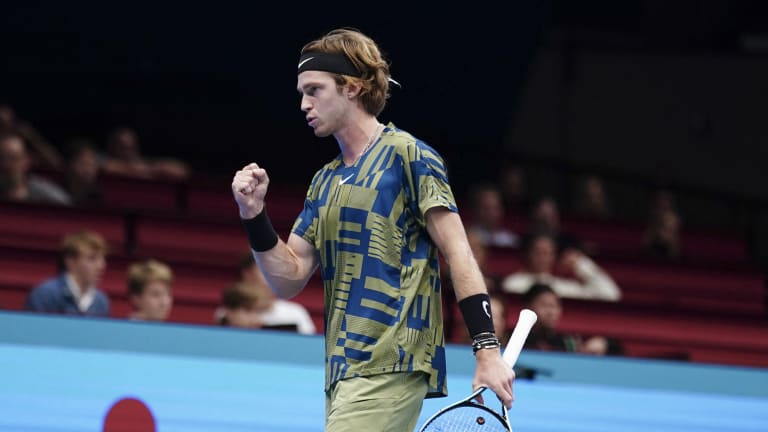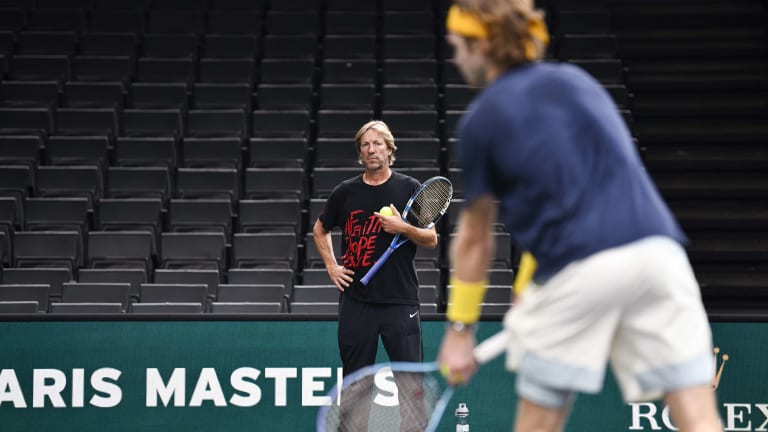ATP Paris, France
Amid intensity and vulnerability, Andrey Rublev prepares for a mental battle in Paris
By Nov 01, 2022ATP Paris, France
Jannik Sinner's latest brilliant run takes him to Paris title
By Nov 02, 2025ATP Paris, France
Paris: Felix Auger-Aliassime nears No. 8 in ATP Finals race after halting Valentin Vacherot
By Oct 31, 2025ATP Paris, France
Will Ben Shelton finally turn the tide against Jannik Sinner?
By Oct 31, 2025ATP Paris, France
Valentin Vacherot defeats Cameron Norrie in Paris to bring Masters 1000 win streak to 10
By Oct 30, 2025ATP Paris, France
"I just have to punish him": Alexander Bublik has final word in Paris with Corentin Moutet
By Oct 29, 2025ATP Paris, France
Jannik Sinner's No. 1 bid starts with second-round win over Zizou Bergs at Rolex Paris Masters
By Oct 29, 2025ATP Paris, France
Grigor Dimitrov withdraws from Paris Masters clash with Daniil Medvedev due to shoulder injury
By Oct 29, 2025ATP Paris, France
Valentin Vacherot earns another Masters 1000 win over cousin Arthur Rinderknech, in Paris
By Oct 29, 2025ATP Paris, France
Carlos Alcaraz falls to dialed-in Cameron Norrie in Paris Masters opener
By Oct 28, 2025Amid intensity and vulnerability, Andrey Rublev prepares for a mental battle in Paris
As the Nitto ATP Finals hopeful begins his Paris campaign against John Isner, he’ll be looking to overcome a twofold mental challenge: he’s 0-3 against his opponent, and 1-4 at the Masters 1000 event.
Published Nov 01, 2022
Advertising
Advertising

Inside the lines, Rublev has had moments where his emotions get the better of him.
© APA/AFP via Getty Images
Advertising
Advertising

“Everyone has their own weaknesses. My weakness is mental," said Rublev who, according to coach Fernando Vicente (pictured), recently began working with a psychologist.
© Sipa USA via AP